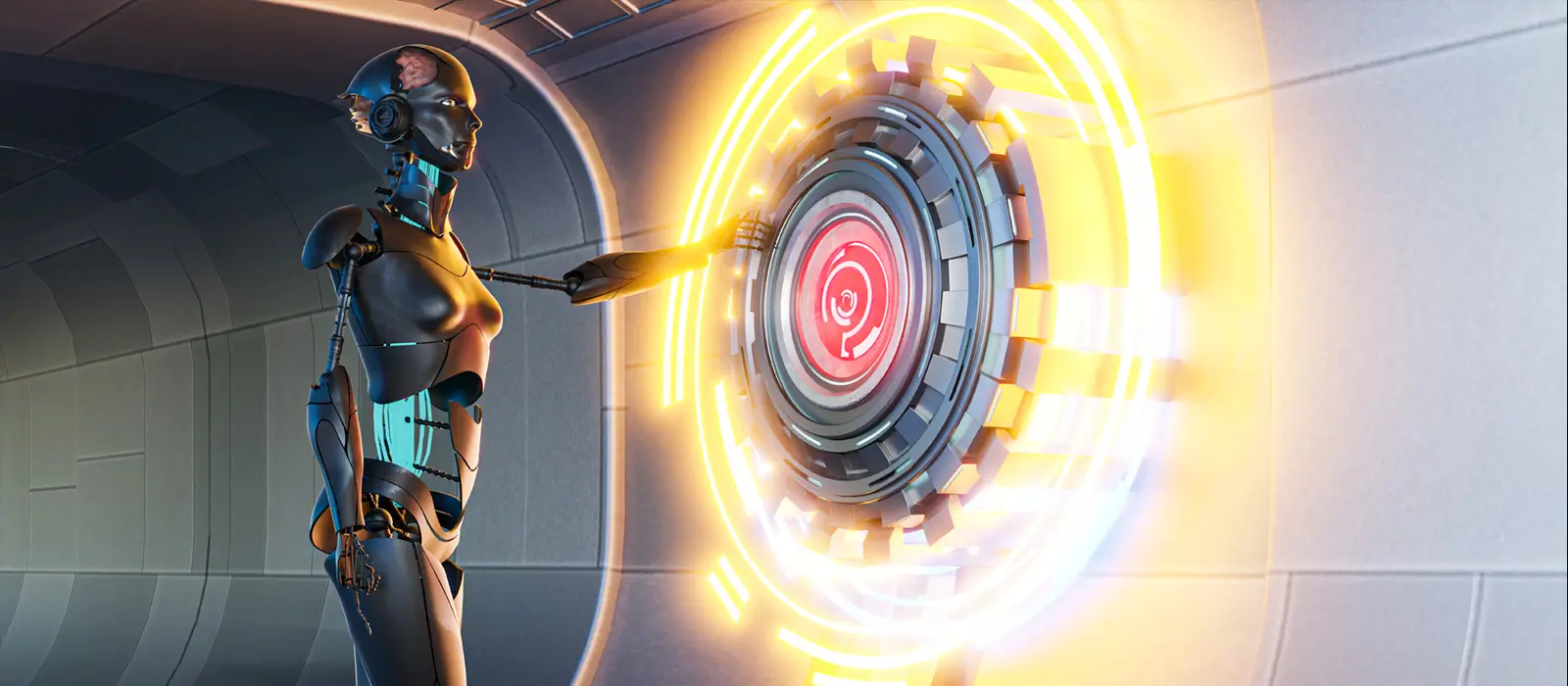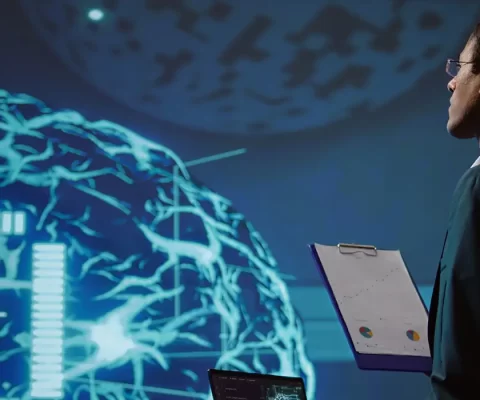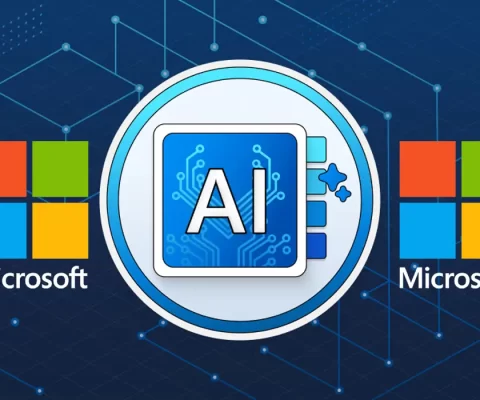Artificial intelligence (AI) is a set of technologies that enable computers to perform a variety of advanced functions, including the ability to see, understand, and translate spoken and written language, analyze data, make recommendations, and more. In other words, Artificial Intelligence (AI) refers to computers capable of performing tasks that were only possible by humans, such as thinking, reasoning, making decisions, and solving problems.
Why we need AI (Artificial Intelligence)
Humans have always sought comfort and tried to reduce effort. He invented the wheel to reduce the hardships of transportation, made several machines to make work easier, created planes and rockets to fly, same as smart phones, high-speed computers and much more but what next? He wants an effortless life. All his work will be done by itself. For this purpose, he is trying to make such intelligent machines that take all of his responsibilities and let him relax for whole life. These futuristic machines are actually AI (Artificial Intelligence), which will let humans always be in a comfort zone.
History of AI (Artificial Intelligence)
The dream of AI (Artificial Intelligence) is not new. Humans have been seeking it for decades.
AI has come a long way since 1951, when the first documented success of an AI computer program was written by Christopher Strachey, whose checkers program completed a whole game on the Ferranti Mark I computer at the University of Manchester. Thanks to developments in machine learning and deep learning, IBM’s Deep Blue defeated chess grandmaster Garry Kasparov in 1997. Since then, generative AI has stepped ahead to the latest chapter in AI’s evolution, with OpenAI releasing its first GPT models in 2018. This has ended with OpenAI developing its GPT-40 model and ChatGPT, leading to an explosion of AI generators that can process queries to produce relevant text, audio, images, and other types of content.
Other companies have followed suit with competing models of their own, including Google’s Gemini, Anthropic’s Claude, and DeepSeek’s R1 and V3 models, which made headlines in early 2025 for approaching parity with competing models at a fraction of the operational cost.
AI has also been used to help sequence RNA for vaccines and model human speech, technologies that rely on model- and algorithm-based machine learning and increasingly focus on perception, reasoning, and generalization.
Evolution of AI (Artificial Intelligence)
AI started as an idea: Can machines think like humans?
In the 1950s, early AI programs only did simple tasks like solving math problems. By the 1980s, AI improved and could help in medical situations, but computers were still not powerful enough.
In the 2000s, the internet gave AI access to more data, making it so that companies like Google and Microsoft used AI for search engines and virtual assistants.
By the 2010s, AI could recognize speech, translate languages, and even identify faces.
Today, AI is everywhere- chatbots, self-driving cars, voice assistant, and medical research.
In the future, AI can solve big problems like diseases and climate change.
When and Why AI (Artificial Intelligence) is getting famous
During the COVID-19 pandemic, artificial intelligence (AI) became very popular, especially in students. With schools closed due to lockdowns, students had to learn online that’s why they used AI tools to complete their assignments. Teachers and schools often send homework and projects online, and AI has made it easier for students to find answers and explanations.
AI wasn’t just popular in education; it also became famous in other fields. Businesses used AI to improve their work processes and stay productive during remote work. Healthcare professionals use AI to monitor patients, analyze data, and even help in the search for vaccines. Offices also adopted AI tools to manage tasks and communication. Among all the AI tools that gained attention, ChatGPT became especially well-known. It stood out because it could answer questions, help with writing, and solve problems, making it useful for both students and professionals. ChatGPT’s ability to assist with so many tasks helped it gain the next level of popularity that few other AI tools have achieved.
Effect of AI (Artificial Intelligence) on Human Life
According to a survey taken by IBM in 2023, 42% of enterprise-scale businesses have integrated AI into their operations, and 40% are considering AI for their organizations. In addition, 38% of organizations have implemented generative AI into their workflows, while 42% are considering doing so. It clearly shows that AI is taking over the business rapidly, and one day, it will occupy the whole business world. According to the latest information, a large percentage of businesses are already using or planning to use AI.
Application of AI (Artificial Intelligence)
AI (Artificial Intelligence) has so many uses in different fields. Some of them are given below:
1) Healthcare
- Disease diagnosis (e.g., AI-powered medical imaging)
- Virtual health assistants
- Treatment plans
2) Business & Finance
Fraud detection
Automated trading
Customer service chatbots
3) Education
- AI tutors
- Learning plans
- Language translation
4) Transportation
- Self-driving cars
- AI traffic management
- Predictive car maintenance
5) Manufacturing
- Robotics in production
- Predictive maintenance of machines
- Quality control
6) Entertainment & media
- AI-generated content like videos, music, and art
- Personalized recommendation (Netflix, YouTube)
- Deepfake technology
7) E-commerce
- Personalized product recommendations
- AI-powered chat support
- Inventory management
8) Security
- Facial recognition
- AI-based threat detection
- Cyber security solutions
9) Agriculture
- AI-powered crop monitoring
- Smart irrigation systems
- Pest detection
10) Space
- Autonomous robots on other planets
- AI in satellite data analysis
AI is continuously evolving, making processes more efficient and improving decision-making in multiple fields.
Best AI (Artificial Intelligence) and their inventors
The best AI depends on your needs. Here are some of the best AI in different fields:
• ChatGPT: One of the best AI chatbots for writing, coding, and answering questions created by OpenAI
• Gemini: Good for answering complex questions created by Google
• xAI Grok: AI chatbot combined with X (Twitter)-Created by (xAI) and founded by Elon Musk
• DeepSeek: Deep Seek is a Chinese company and AI similar to ChatGPT. It was founded by Liang Wengfeng
• Google Assistant: A voice AI for Android devices helps in controlling smart devices
• Siri: Apple’s voice assistant for iPhones,iPads, and other Apple devices created by Apple
• Alexa: One of the best voice-based AI used for questioning and controlling smart devices created by Amazon
• Copilot: AI combined into Office-like Word and Excel created by Microsoft
• Kavout: AI helpful in prediction and investment insights created by Kavout Corporation
• IBM Watson Health: An AI helpful in medical research and healthcare created by IBM
Advantages of AI (Artificial Intelligence)
1) Make work easier and faster: AI can do tasks faster than humans, like problem-solving, analyzing data, etc
2) Reduces mistakes: AI provides your work with accuracy
3) Work without getting tired: Not like humans, I can work 24/7 without any break
3) Quick understanding and processes data: AI can analyze large amounts of data in seconds
4) Help in better decision making: AI gives you useful suggestions
5) Helpful in healthcare: AI can recommend medicines as doctor
Disadvantages of AI (Artificial Intelligence)
1) Job risk: AI can replace humans in many jobs
2) Very expensive: Developing and maintaining needs a lot of money
3) Not creative: AI follows patterns but does not think like humans creative
4) Security risk: AI can be hacked
5) Can be biased: AI can make the wrong decision if it learns from the wrong data
Conclusion
AI is changing our world in many ways. It helps us in movie selection, answering questions, and in big tasks, like driving cars and helping doctors find better treatment. Businesses use AI to work fast and smart, and scientists use it to study space, weather, and disease. AI is becoming a part of life, making things easier and perfect. But AI also has challenges. Many people worry that machines will take away jobs, making it harder for employees to find jobs. Privacy is another big issue because AI collects a lot of personal data. There are also concerns about fairness- can AI always make the right decision? If not handled carefully, AI could cause more problems than it solves. It is also
changing the way we communicate. Chabots and virtual assistants are making customer service faster, while AI-powered translation tools are breaking language barriers. In agriculture, AI helps farmers grow more food, analyze soil conditions, and predict weather patterns. In cities, AI-traffic management systems are making traffic more efficient.
However, AI does not replace humans but works alongside us to make things better. It should be created and used in a way that benefits society, making life easier and advancing everywhere. It’s up to us to ensure that AI is fair, safe, and used for good. To achieve this, we need strong rules and ethical guidelines to prevent AI from being misused. Education is important so people can learn new skills, but you can use AI for your correction, finding ideas, for research and consult on topics, don’t depend on AI too much.
Enhance your creativity without relying on AI. If we use AI carefully, it can make the world a better place.





Nice one
Splendid work on AI, the emerging technology. The contents of above Article are outstanding and really helpful.
Such a study in AI is impressive.